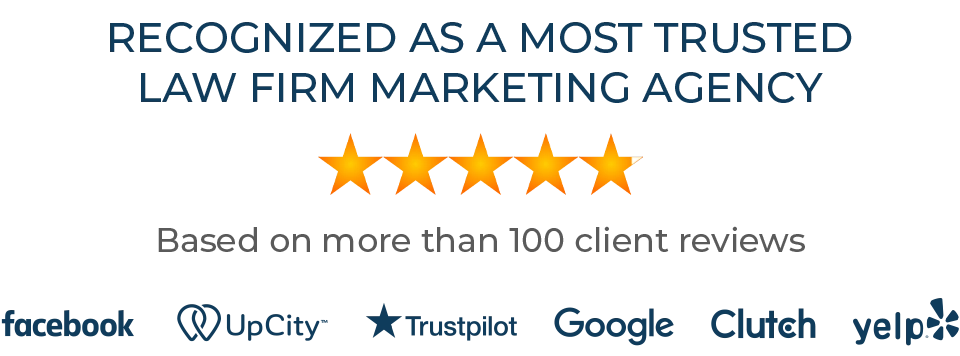One of the reasons that most people abandon a content marketing strategy is because they cannot tell if it is working, how it is working, and why it is working. If there is no way to attribute growth or profits to this marketing strategy, it is easier to simply stop doing it, rather than to continue to dump funds into a strategy that might not actually be bringing you any results. Content marketing does have its benefits, especially if you can create measurable goals for your strategy. Here’s how to do exactly that:

Determine Where You Are Right Now
In order to be able to set goals, you need to know where you are right now. There is nothing more frivolous than trying to make goals for your content marketing strategy without having any idea of where you are with your strategy right now. This is why so many companies end up setting ridiculous goals that they can never hope to meet—because they do not know where they are and what would be classified as an achievable goal. Other companies will set goals that are so easy to reach that they miss out on real growth opportunities.
The ultimate goal of your content marketing scheme is to increase blog and website traffic, which should bring you more profits. In order to determine where you are right now, look at your analytics and record those analytics. Look at how much your traffic has increased over the last quarter. If, without tracking or doing anything new in your content marketing strategy, you’ve seen a 5% increase in traffic, a goal to get an 8% increase is challenging, yet attainable.
This requires a certain amount of self-awareness about your business. At what stage is your business? In the very early days, a large portion of your content marketing should be to disseminate information and to get feedback about your product or service. It is only after you have started to build brand recognition and have cemented your product or service as being wanted and valuable that you should start focusing heavily on search metrics, shares, engagement, and other important aspects of your content marketing campaign.
Decide How You Are Going to Track Progress
 The key to creating a measurable goal is to actually track something that can be measured. You cannot, for example, measure how much your customers love your product. You can, however, measure how often a piece of content is shared. You need to decide what metric you are going to track when it comes to measuring your goal. Keep in mind that trying to track too many metrics is just going to make your life difficult. Choose one metric that gives you a good idea if you are progressing towards success.
The key to creating a measurable goal is to actually track something that can be measured. You cannot, for example, measure how much your customers love your product. You can, however, measure how often a piece of content is shared. You need to decide what metric you are going to track when it comes to measuring your goal. Keep in mind that trying to track too many metrics is just going to make your life difficult. Choose one metric that gives you a good idea if you are progressing towards success.
How do you know which metric to track? If you are going for more page views, the answer is easy: you need to track page views. If you want higher engagement, however, you are going to need to look at different numbers. Time spent on a page, the number of comments, the number of likes, the number of shares—all of these are important metrics for engagement.
A very bad example of a goal is that you simply want to improve your content marketing campaign. This is a goal that digital marketing firms will hear a lot and one that they will tell you means nothing. You can want to improve all you want, but if you do not know, first, how you need to improve and second, how you are going to measure improvement, you are not going to get anywhere. You might see a little boost, but only when a goal is measurable is it actually possible to find real ways to succeed.
Make Your Goal Specific
 The biggest mistake that most people make when coming up with goals is that they make those goals so general that there is no way to know if you have failed or achieved them, or so that any little bit of progress is seen as achieving that goal. Take, for example, one of the most popular New Year’s Resolutions: losing weight. If a person was to lose a pound, they would have technically achieved that goal. If the goal, however, is to lose fifty pounds, they now have a very specific goal that is simple to measure.
The biggest mistake that most people make when coming up with goals is that they make those goals so general that there is no way to know if you have failed or achieved them, or so that any little bit of progress is seen as achieving that goal. Take, for example, one of the most popular New Year’s Resolutions: losing weight. If a person was to lose a pound, they would have technically achieved that goal. If the goal, however, is to lose fifty pounds, they now have a very specific goal that is simple to measure.
But a goal needs to be more than just specific in order to be measurable and ultimately, achievable. In content marketing, it also needs to come with a plan. There is no value in saying, “We want to reach fifty more people a month with our content,” if there is no plan that comes with that goal. How you are going to reach those people is just as important as the ability to tangibly measure the number of people that you want to reach. This information is also how you will create your goal posts, which will help you determine whether or not you are actually progressing.
For example, if your goal is to reach fifty more people this month, an example of a goal post might be, “Tweet a link to the latest blog post every morning at 9:00.” If you do this, you have given yourself a directive that pushes you towards your goal.
One of the reasons that most people abandon a content marketing strategy is because they cannot tell if it is working, how it is working, and why it is working. If there is no way to attribute growth or profits to this marketing strategy, it is easier to simply stop doing it, rather than to continue to dump funds into a strategy that might not actually be bringing you any results. Content marketing does have its benefits, especially if you can create measurable goals for your strategy. Here’s how to do exactly that:

Determine Where You Are Right Now
In order to be able to set goals, you need to know where you are right now. There is nothing more frivolous than trying to make goals for your content marketing strategy without having any idea of where you are with your strategy right now. This is why so many companies end up setting ridiculous goals that they can never hope to meet—because they do not know where they are and what would be classified as an achievable goal. Other companies will set goals that are so easy to reach that they miss out on real growth opportunities.
The ultimate goal of your content marketing scheme is to increase blog and website traffic, which should bring you more profits. In order to determine where you are right now, look at your analytics and record those analytics. Look at how much your traffic has increased over the last quarter. If, without tracking or doing anything new in your content marketing strategy, you’ve seen a 5% increase in traffic, a goal to get an 8% increase is challenging, yet attainable.
This requires a certain amount of self-awareness about your business. At what stage is your business? In the very early days, a large portion of your content marketing should be to disseminate information and to get feedback about your product or service. It is only after you have started to build brand recognition and have cemented your product or service as being wanted and valuable that you should start focusing heavily on search metrics, shares, engagement, and other important aspects of your content marketing campaign.
Decide How You Are Going to Track Progress
 The key to creating a measurable goal is to actually track something that can be measured. You cannot, for example, measure how much your customers love your product. You can, however, measure how often a piece of content is shared. You need to decide what metric you are going to track when it comes to measuring your goal. Keep in mind that trying to track too many metrics is just going to make your life difficult. Choose one metric that gives you a good idea if you are progressing towards success.
The key to creating a measurable goal is to actually track something that can be measured. You cannot, for example, measure how much your customers love your product. You can, however, measure how often a piece of content is shared. You need to decide what metric you are going to track when it comes to measuring your goal. Keep in mind that trying to track too many metrics is just going to make your life difficult. Choose one metric that gives you a good idea if you are progressing towards success.
How do you know which metric to track? If you are going for more page views, the answer is easy: you need to track page views. If you want higher engagement, however, you are going to need to look at different numbers. Time spent on a page, the number of comments, the number of likes, the number of shares—all of these are important metrics for engagement.
A very bad example of a goal is that you simply want to improve your content marketing campaign. This is a goal that digital marketing firms will hear a lot and one that they will tell you means nothing. You can want to improve all you want, but if you do not know, first, how you need to improve and second, how you are going to measure improvement, you are not going to get anywhere. You might see a little boost, but only when a goal is measurable is it actually possible to find real ways to succeed.
Make Your Goal Specific
 The biggest mistake that most people make when coming up with goals is that they make those goals so general that there is no way to know if you have failed or achieved them, or so that any little bit of progress is seen as achieving that goal. Take, for example, one of the most popular New Year’s Resolutions: losing weight. If a person was to lose a pound, they would have technically achieved that goal. If the goal, however, is to lose fifty pounds, they now have a very specific goal that is simple to measure.
The biggest mistake that most people make when coming up with goals is that they make those goals so general that there is no way to know if you have failed or achieved them, or so that any little bit of progress is seen as achieving that goal. Take, for example, one of the most popular New Year’s Resolutions: losing weight. If a person was to lose a pound, they would have technically achieved that goal. If the goal, however, is to lose fifty pounds, they now have a very specific goal that is simple to measure.
But a goal needs to be more than just specific in order to be measurable and ultimately, achievable. In content marketing, it also needs to come with a plan. There is no value in saying, “We want to reach fifty more people a month with our content,” if there is no plan that comes with that goal. How you are going to reach those people is just as important as the ability to tangibly measure the number of people that you want to reach. This information is also how you will create your goal posts, which will help you determine whether or not you are actually progressing.
For example, if your goal is to reach fifty more people this month, an example of a goal post might be, “Tweet a link to the latest blog post every morning at 9:00.” If you do this, you have given yourself a directive that pushes you towards your goal.
Published on August 25, 2016

